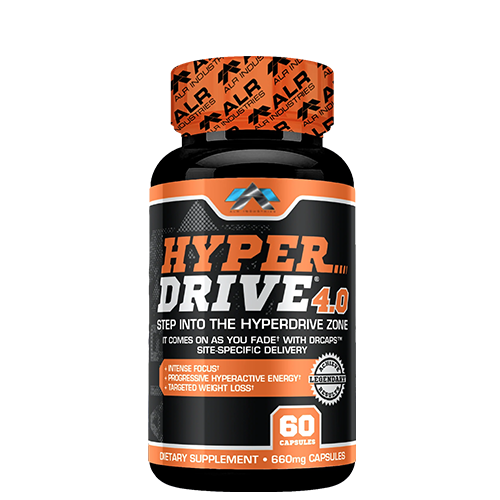Welcome to “Weight Loss Ingredients That Work: Your Comprehensive Guide,” where we delve into the world of natural catalysts for shedding pounds. As we navigate an age where over 36% of U.S. adults are classified as obese, the quest for effective weight loss strategies has never been more critical. We’ve sifted through countless studies to curate a list of weight loss ingredients backed by science, promising to not only boost metabolism but also assist in holistic body weight management.
Our focus extends beyond just the numbers on the scale; it’s about a synergy between metabolism, fat burning, and thermogenesis for a healthier lifestyle. In our guide, we spotlight the best fat burner ingredients that support metabolic rate enhancement and foster natural weight loss without compromising your well-being.

Weight Loss Ingredients that Work
Tailoring our approach enables us to address the individuality of weight loss. Whether it’s integrating metabolism-boosting spices or fostering fat-burning through verified natural weight loss ingredients, our comprehensive list of weight loss ingredients is designed to be your ally in this journey. With insights into how each component plays a crucial role in your metabolic rate, we empower you with knowledge to make informed decisions.
We understand the intricate dance between diet, exercise, and lifestyle habits that lead to successful weight management. Join us as we explore each ingredient, from the well-known to the newfound, revealing their potential in your pursuit of health. Together, we’ll unlock the secrets of effective and sustainable weight loss, turning the tide on the obesity epidemic one ingredient at a time.
Fenugreek
Moving deeper into our list of weight loss ingredients that work, we find ourselves exploring the ancient herb fenugreek, a multi-faceted powerhouse native to Central Asia. Long celebrated in alternative medicine for its potential benefits against diabetes and high cholesterol, fenugreek has made waves in the realm of natural weight loss ingredients—ones that might just be the missing component in your metabolic puzzle.
I’ve discovered that incorporating fenugreek into my diet could be a game-changer for achieving a holistic balance in body weight management. Studies suggest that one of fenugreek’s superpowers lies in its capability to promote satiety—keeping us feeling full longer—and reducing the caloric pile-up from dietary fats. If you’re like me, constantly on the lookout for natural allies in your fight against flab, then here’s why fenugreek should be on your radar:
- Natural Appetite Control: Fenugreek seeds are rich in galactomannan, a soluble fiber that has a natural talent for minimizing fat accumulation and curbing hunger pangs. This means you’re less likely to reach for unnecessary snacks throughout the day.
- Digestive Harmony: With a considerable amount of insoluble fiber, fenugreek aids in digestion and the gentle elimination of toxins, which is crucial for anyone aiming to tackle weight loss holistically.
- Sugar Level Stabilizer: By moderating blood sugar levels, fenugreek helps manage cravings that can derail even the best of diet intentions.
Body’s Thermogenesis
We’ve all heard the adage “moderation is key,” and this couldn’t be truer than with fenugreek. Though generally safe when used in amounts typical in foods, excessive consumption can actually disrupt digestion. Plus, although rare, high doses can sometimes lead to mild side effects like nausea or an unwarranted dip in blood sugar. I found the best ways to include fenugreek in my routine are through its seeds, either soaked in water, brewed into tea, or as part of my culinary adventures to boost metabolism and encourage fat burning.
It’s clear that when it comes to the symphony of metabolism, fenugreek can be the note that brings harmony to our body’s thermogenesis and fat-burning processes. Yet, always keep in mind that these natural weight loss ingredients are part of a larger ensemble that includes a balanced diet and regular exercise. And remember, before taking the stage with fenugreek in your weight loss concert, it’s wise to converse with a healthcare professional, especially if you have pre-existing health conditions or are pregnant.
While fenugreek is a valuable contributor to our list of weight loss ingredients, it’s important to remember that its role in weight loss is not yet fully defined and requires more investigation. But, in the meantime, this herb can play an integral role in our day-to-day nutrition, acting as one of the best fat burner ingredients when part of a nuanced and comprehensive approach to weight management. As we continue to search for weight loss ingredients that work, let’s not overlook the traditional staples that have long been revered for their health-boosting properties.
Cayenne Pepper
Continuing our journey through the proven weight loss ingredients that work, let’s turn up the heat with cayenne pepper. You may know it as the spice that gives your dishes a kick, but this fiery red powder is serious about fueling your fat-burning efforts. Here’s what I discovered about this potent member of the nightshade family.
Cayenne pepper, with its main active compound capsaicin, is the driving force behind the thermogenic effect that boosts metabolism and curbs appetite. When I added cayenne pepper to my diet, I was intrigued by the research suggesting that it can boost metabolism by up to 25%. That’s significant, considering every little spike in metabolic rate can be instrumental in our body’s capacity to burn more calories, even at rest.
- Natural Appetite Suppressant: My experience concurs with studies showing that cayenne pepper can diminish the urge to overeat. It makes me feel fuller for longer, decreasing the odds of snacking on junk food. This is due to capsaicin’s impact on appetite-regulating hormones.
- Energizing Calories Burn: With claims of up to a 0.9 kg decrease in body weight from capsaicin over 12 weeks, incorporating cayenne pepper aligns perfectly with the goal of thermogenesis-enhanced fat loss. It revs up fat oxidation, meaning it’s helping to convert those stubborn fat reserves into usable energy.
- Mood and Energy Level Booster: My mood also seemed to benefit from this spicy addition, and I noticed a slight but significant uptick in my resting energy expenditure.
Buy Ephedra Fat Burner

Designed for those who need to take their weight loss up a notch, Yellow Bullet Xtreme is perfect for fitness competitors and bodybuilders. Boost your metabolism, increase energy levels, and accelerate fat burning.
Metabolic Benefits
While cayenne pepper’s virtues in the list of weight loss ingredients are compelling, the pepper should be wielded with care to avoid unwelcome side effects. A daily dose ranging between 1-1.6 grams can significantly aid in fat metabolism without causing discomfort. However, going overboard might lead to some burning sensations along the digestive route and an occasional encounter with heartburn. It’s a reminder that balance is paramount when integrating natural weight loss ingredients into our regimen.
Apart from its metabolic benefits, cayenne pepper is a cornucopia of antioxidants. It’s imbued with vitamins C and E, beta carotene, choline, and lutein, fortifying its status not only on the list of weight loss ingredients but also as a proactive guard against chronic diseases. Moreover, it contributes to vascular health, which is pivotal when considering the comprehensive health implications of body weight management.
As we navigate the intricacies of metabolism, it’s essential to incorporate ingredients like cayenne pepper that catalyze our fat-burning processes. The key is in the dosage; I’ve learned that cayenne pepper capsules can comfortably provide the recommended 2 to 6 mg per day, fitting seamlessly into a weight management plan. Always consult with a healthcare professional before starting any supplement, and keep an eye out for interactions with medications, such as blood thinners and antacids. Embracing capsaicin as one of the best fat burner ingredients has been a gratifying part of my journey towards achieving a healthier body weight.
Ginger
Moving along in our exploration of the best fat burner ingredients on our list of weight loss ingredients, I’ve delved into the versatile and invigorating root of ginger. With its pungent and spicy flavor profile, ginger not only adds zest to meals and drinks but also, as I’ve learned, packs a punch in the realm of weight management.
Digging into the science behind ginger’s weight loss properties, I uncovered some fascinating insights that solidified its place in our guide:
- Active Components: Ginger is rich in compounds like zingerone and shogaols, which have been shown to support the fat burning process. Their thermogenic properties help increase the metabolic rate and may stimulate our body’s ability to burn more calories.
- Appetite Regulation: A 2015 study highlighted that women with obesity who added 2 grams of dried ginger powder to their daily diet experienced a decrease in appetite and body measurements. This resonates with my personal quest to maintain a healthy body weight through natural assistance in appetite control.
- Fat Oxidation: Ginger has been observed to boost the fat oxidation process. By enhancing thermogenesis, it prompts the body to burn fat for energy, an essential component in achieving and maintaining weight loss.
Weight Loss Plan
Incorporating ginger into my daily routine has been both enjoyable and beneficial. I find it remarkably versatile, whether it’s steeping fresh ginger for a warm, soothing tea or sprinkling powdered ginger over a stir-fry for an extra metabolic kick. While studies such as the one mentioned above serve as a testament to ginger’s effectiveness, it’s important to integrate it into a well-rounded weight loss plan that includes balanced nutrition and regular exercise.
Ginger serves as a remarkable example of how the symphony of natural weight loss ingredients can enhance our body’s thermogenic response. But remember, moderation is key. Though large amounts are generally not necessary to reap its benefits, excessive consumption could lead to discomfort such as heartburn or digestive issues. As with any addition to your weight management strategy, consulting with a healthcare provider ensures that ginger complements your individual health profile and goals.
Cinnamon
As we continue to explore the wealth of natural weight loss ingredients that work, cinnamon stands out not just for its warm, sweet aroma but also for its potential to influence metabolism and body weight management. Derived from the inner bark of trees from the genus Cinnamomum, cinnamon has been savored in culinary uses worldwide and has a storied history as a medicinal spice. I’ve been particularly intrigued by the distinct health benefits linked to the two primary types of cinnamon: Ceylon and Cassia, with Cassia being more common in kitchens.
Here’s how this ancient spice assists in the weight loss process:
- Blood Sugar Regulator: I found that one of cinnamon’s most significant benefits in relation to weight loss is its ability to maintain and lower blood sugar levels. This has been a valuable aid in curtailing my cravings for sweets and helping manage my calorie intake.
- Metabolism Booster: Acting as a natural metabolic stimulant, cinnamon has the unique ability to increase energy expenditure. By using more energy to metabolize the spice, it subtly enhances our metabolic rate, contributing to thermogenesis and fat burning.
- Insulin Mimicry: It was fascinating to learn that cinnamon can have insulin-like activity, aiding in the way sugar is broken down. This not only helps in managing diabetic conditions but also supports the body in using carbohydrates more efficiently, an essential aspect for any list of weight loss ingredients.
Avoid Over Snacking
The generous fiber content in cinnamon also promotes a feeling of fullness, helping us avoid over-snacking. To put its benefits into perspective, here are the nutritional values per teaspoon (2.6 grams):
- Energy: 6.42 Calories
- Protein: 0.104 grams
- Fat: 0.032 grams
- Fiber: 1.38 grams
This nutritional punch can be especially helpful for targeting fat in the abdominal area, improving overall body metabolism. Engaging in regular supplementation of this spice has been shown to positively impact all components of metabolic syndrome, including improved cholesterol levels and reduced coagulation risk, according to the studies I’ve reviewed.
Incorporating cinnamon into my diet has been incredibly easy and delicious. I’ve added it to my morning oatmeal, sprinkled over coffee, and even included it in savory dishes for an extra zest and health boost. However, moderation is essential; too much cinnamon, particularly the common Cassia variety, can lead to liver issues due to coumarin content. It is always best to consult healthcare professionals before making significant changes, but integrating cinnamon into a diet as one of the best fat burner ingredients can be a smart move for enhancing natural weight loss ingredients and improving overall health.
Each addition to our list of weight loss ingredients that work uniquely contributes to a multifaceted approach to body weight management. Cinnamon embodies a harmony of taste and health benefits, making it a staple for those looking to boost metabolism and embrace a lifestyle geared towards effective weight control.
Turmeric
Continuing our exploratory odyssey into the realm of natural weight loss ingredients that work, turmeric takes its rightful place on the list of weight loss ingredients due to its notable active compound—curcumin. Traditionally used for its flavor and vibrant color in various cuisines, I’ve recently unearthed its potential for aiding in weight management. Delving into its properties has been nothing short of an eye-opener on my journey to sustain a healthy body weight.
Research has illuminated some surprising capabilities of turmeric that suggest it might be instrumental in obesity-related inflammation and metabolism modulation. Let me walk you through some of the sterling points I’ve uncovered:
- Inflammation Reduction: Curcumin has been celebrated for its anti-inflammatory properties, which are crucial given that obesity can lead to a state of chronic inflammation, exacerbating hormonal imbalances and increasing appetite.
- Appetite and Weight Control: Diving into studies, one systematic review and meta-analysis of randomized controlled trials (RCTs) revealed that curcumin intake significantly reduced BMI, waist circumference, and leptin levels—markers strongly associated with body weight and fat distribution. This substantiates turmeric’s role in our compiled list of weight loss ingredients to boost metabolism.
- Mood Enhancement: Interestingly, turmeric may also improve mood symptoms, a sometimes overlooked but vital factor that can influence eating behaviors and body weight. The comfort in knowing that a spice in my kitchen can potentially uplift my spirit while managing body weight is pleasantly reassuring.
Metabolic Influence
Ensuring optimal turmeric intake, around 500–2,000 mg of turmeric extract per day seems to be the sweet spot recommended for its potential benefits. However, curcumin’s bioavailability is often hindered on its own. For increased absorption, it’s pivotal to pair it with black pepper, which contains piperine, enhancing curcumin’s absorption by a significant margin.
Moreover, turmeric’s metabolic influence extends to the microbiota, which plays a role in our body’s overall metabolic wellness. Curcumin administration affects gut flora composition beneficially and reduces adiposity, adding another layer to its fat-burning prowess. It’s intriguing to discover how this golden spice can contribute not only to my palate but also to maintaining an optimal metabolic rate.
However, we must heed the cautionary tales associated with turmeric intake, especially when consumed in significant amounts. I make sure to supplement turmeric responsibly, as high doses can lead to stomach discomfort and other side effects. Always in the back of my mind is the importance of discussing dietary changes with a healthcare provider, particularly if you’re living with conditions like diabetes or iron deficiency. Turmeric, revered as one of the best fat burner ingredients, has certainly added not only color but also a healthful zest to my weight management repertoire.
As we fold in each ingredient into our holistic diet, it’s clear that our list of weight loss ingredients is incomplete without considering the potential of spices like turmeric. Its multifaceted approach to affecting body weight, metabolic rate, and thermogenesis is a testament to the power of combining dietary shifts with healthy lifestyle changes to achieve our weight loss ambitions.
Black Pepper
As we traverse the landscape of natural weight loss ingredients, black pepper emerges as a surprising yet potent ally. My recent forays into nutritional research have illuminated the remarkable role this common kitchen spice can play in boosting metabolism and supporting thermogenesis. Central to black pepper’s weight loss powers is piperine, an alkaloid that not only enhances the flavor but also lends itself to a multitude of metabolic benefits.
Here’s what I’ve learned about incorporating black pepper into my regime:
- Absorption Enhancer: Piperine, found in black pepper, impressively improves the absorption of other ingredients by up to 2,000%, which is why I often pair it with turmeric to increase the bioavailability and effectiveness of food consumption.
- Metabolic Booster: Harnessing the fat-burning potentials of piperine, it’s been observed to kick up our metabolic rate and decelerate the formation of new fat cells, integrating seamlessly with my list of weight loss ingredients.
- Nutrient Bioavailability: Black pepper shoots up the nutrient bioavailability in our body, thus ensuring that we get the most out of what we eat, which is crucial in managing a healthy body weight.
Strong Fat Burner

Racer Ephedra offers the lowest price online for Green Stinger. The ephedra fat burner is one of the strongest fat burners on the market.
Natural Fat Fighter
Delving deeper, studies centering on piperine’s potential reveal its ability to act as a natural fat fighter:
- The structural similarity piperine holds with MC-4 agonists is suggested to contribute to its fat and lipid reduction capabilities. This aligns well with my persistent efforts to vet the best fat burner ingredients that are backed by science for their efficacy in weight loss.
- Although predominantly noted in animal studies, piperine has shown promising signs of reducing body weight, trimming down fat mass, balancing cholesterol levels, and even promoting insulin sensitivity—a crucial factor in stabilizing blood sugar levels which directly impacts fat storage and appetite.
To harmonize black pepper with your diet, it’s sufficient to use concentrations typical for culinary purposes, which also helps avoid the potential side effects of consuming higher quantities. The safe dosage range suggested for piperine is 5-20 mg daily; this is important to remember, as overstepping this range may lead to gastrointestinal issues or skin irritation. As someone mindful of their digestive health, I follow this guideline and ensure that after a meal with black pepper, I drink plenty of water and sometimes include a serving of fat-free yogurt to soothe the intestinal walls.
Black pepper’s repertoire transcends beyond weight loss; this humble spice is a stronghold of antioxidant properties, improved brain function, and serves as a natural remedy for various maladies. It’s even been attributed with antidepressant properties, potentially aiding in appetite suppression and mitigating stress-eating—a concept that resonates with me personally during more strenuous periods.
Adding black pepper to our list of weight loss ingredients to boost metabolism enhances our overall dietary strategy. It’s critical to approach all natural weight loss ingredients, including this pungent spice, with consideration to their synergistic effects and potential in our journey toward a balanced body weight. And while the promise of piperine in weight management is compelling, I eagerly await more human trials to substantiate these findings further. Until then, I’ll continue to season my meals with a pinch of black pepper, optimizing the fat-burning abilities of my culinary creations.
Green Coffee Bean Extract
Amidst our curated list of weight loss ingredients that work, green coffee bean extract (GCE) is a standout extract that grabbed my attention with both its fat-burning potential and intriguing scientific backing. My exploration into GCE revealed a treasure trove of promising data supporting its use as an adjunct in body weight management. Here’s what I discovered about this compelling ingredient:
- Clinical Evidence of Efficacy: Recent studies, including a systematic review and meta-analysis of randomized clinical trials, exhibit a significant difference in body weight when participants supplemented with GCE compared to a placebo group. The numbers reflect a convincing mean difference of -2.47 kg, a statistic that adds substantial weight to green coffee bean extract joining our esteemed list of weight loss ingredients.
- Body Composition Transformation: In a well-designed 12-week clinical trial, subjects experienced noteworthy changes in body composition with GCE, notably a decrease in body fat percentage and an improvement in lean mass to fat mass ratio. The participants also showed a remarkable reduction in waist and hip circumference—metrics that are often more telling than the scale itself.
- Supportive Changes in Blood Lipids: The group receiving GCE didn’t just lose weight but also welcomed positive changes in their blood lipid profiles, with significant reductions in triglycerides and LDL cholesterol levels. These improvements are instrumental not only in our quest to boost metabolism but also in striving for a holistic approach to health.
Metabolic Enhancing
As I delve deeper into the components of GCE, I find that it wields its powers through chlorogenic acid, a natural antioxidant that has been associated with various health benefits. Its capacity to potentially reduce inflammation, lower blood pressure, regulate blood sugar levels, and decrease carbohydrate absorption in the digestive tract makes it a robust addition to our metabolism-enhancing arsenal. Nevertheless, as with all natural weight loss ingredients, the key lies in balance and proper usage. Consuming GCE also allows me to benefit from a mild caffeine boost, which is believed to complement the fat-burning effects of the chlorogenic acids.
In light of its potential to influence not just thermogenesis but also to aid in blood sugar and blood pressure regulation, green coffee bean extract seems promising for those of us managing metabolic health concerns, such as type 2 diabetes. However, it’s critical to underline the importance of moderation with GCE, as it is with other caffeine sources, to circumvent issues such as sleep disturbances and increased anxiety.
To ensure a judicious approach, consulting with a doctor becomes imperative before adding this supplement to my regimen, especially since interactions with other medications are possible. In essence, harnessing the best fat burner ingredients like green coffee bean extract must always go hand in hand with the wisdom of personal health circumstances and professional guidance. This ensures I’m adding the right tunes to the symphony of my holistic weight loss strategy – a strategy that’s personalized, safe, and effective.
Weight Loss Supplement Efficacy
Over the past two decades, weight-loss dietary supplements have gained significant popularity among consumers and dietician-nutritionists, leading to a substantial increase in health-related expenditures. Despite their appeal as “natural” remedies for weight loss, these supplements often contain a wide array of ingredients with limited scientific backing. Currently, there is a dearth of robust evidence supporting the efficacy of these supplements in aiding weight reduction or meeting recommended use criteria.
The landscape of weight-loss supplements is characterized by a lack of comprehensive, randomized, placebo-controlled studies that could provide definitive scientific evidence of their effectiveness and potential side effects in clinical practice. This gap in research poses a significant challenge for healthcare professionals tasked with counseling patients on their use. The National Institutes of Health (NIH) has recently published detailed information on the efficacy and safety of commonly used weight-loss dietary supplements. However, this report does not adequately address the critical issue of potential drug interactions with these supplements.
For nutritionists and physicians, understanding the evidence surrounding the efficacy, safety, and quality of these supplements is crucial. This knowledge is essential not only for providing appropriate guidance to patients but also for mitigating the risks associated with serious adverse effects and potential interference with concurrent therapies. The complexity of this issue underscores the need for a balanced approach when considering the use of weight-loss supplements.
While some supplements may offer modest benefits, the potential risks and interactions cannot be overlooked. Healthcare professionals must stay informed about the latest research and guidelines to provide evidence-based recommendations to their patients. Consumers, on the other hand, should be encouraged to consult with healthcare providers before incorporating any weight-loss supplements into their regimen.
The growing market for weight-loss dietary supplements demands increased scrutiny and research. As the scientific community continues to investigate these products, it is imperative that both healthcare professionals and consumers approach their use with caution, prioritizing safety and efficacy based on sound scientific evidence.
Conclusion
In conclusion, our foray into the realm of scientifically-backed weight loss ingredients underlines the importance of integrating natural components like fenugreek, cayenne pepper, ginger, cinnamon, turmeric, black pepper, and green coffee bean extract into our daily nutritional repertoire. These ingredients not only bolster our metabolism but also offer a suite of health benefits that align with reducing body weight and enhancing overall well-being. Their collective impact on appetite control, blood sugar stabilization, and inflammation reduction emerges as a holistic and symbiotic approach to managing our body’s complex metabolic processes.
As we move forward, it is pivotal to remember that while these ingredients possess significant potential to support weight loss efforts, they perform best when part of a balanced diet and active lifestyle. Further exploration and adherence to appropriate dosages, accompanied by professional medical advice, are crucial to maximizing the efficacy and safety of these natural aids. Ultimately, our guide paves the way for informed and measured inclusions of these substances, rendering them powerful allies in our continuous journey towards a healthier and more harmonious body weight management.
FAQs
Throughout this guide, we’ve looked closely at a variety of weight loss ingredients that work by enhancing metabolism, fostering fat burning, and promoting the process of thermogenesis. Understandably, as we’ve uncovered the benefits of each ingredient, questions may linger about broader issues related to body weight management. Here are some commonly asked questions which expand on our comprehension of this complex topic:
- The Impact on Overall Health: I’ve long acknowledged that shedding those extra pounds extends far beyond appearance. Delving into the literature fortified my understanding that weight loss could considerably improve health by decreasing the risk of heart disease, type 2 diabetes, and even some cancers. It’s a reminder that our quest should not only focus on achieving a better body weight but also encompass a more comprehensive health perspective.
- Influencing Factors: A myriad of factors affects weight loss, and understanding these has helped guide my nutritional choices and lifestyle changes. Acknowledging that various components like diet composition, calorie intake, physical activity, sleep quality, and metabolic rate intricately interplay to affect body weight is crucial. This knowledge has reinforced my appreciation for the personalized nature of weight loss strategies and the importance of a holistic approach to body weight management.
- Goals for Weight Loss: The question of how much weight one should aim to lose is not one-size-fits-all. My journey led me to consult healthcare experts to set realistic, healthy weight loss targets suited to my individual needs. Remember, successful weight management is not just about the pounds lost but achieving a sustainable, healthier lifestyle.
- The Journey’s Timeline: The realization that weight loss is not a race but a marathon was pivotal in my journey. Rates of weight loss will vary, and patience is key. Embracing lifestyle changes for the long haul, instead of seeking quick fixes, has been central to maintaining my health and achieving gradual, lasting results.
- Supplement Efficacy: When discussing weight-loss dietary supplements, a discerning eye for scientific evidence is necessary. Generally, natural weight loss ingredients tend to have varying levels of efficacy, and it’s important to be wary of bold claims and look for ingredient that has backing from scientific studies.
- Common Ingredients and Side Effects: Our digital era makes a list of weight loss ingredients readily accessible, yet the accompanying side effects must also be taken into account. While we’ve explored several beneficial ingredients in our guide, it is also vital to remember that negative side effects can range from mild discomfort to more severe health implications, and therefore, moderation and professional consultation are paramount.
- Safe Weight Management: For me, ensuring safe weight loss has meant adopting a balanced diet, reducing caloric intake naturally, and establishing an exercise routine—all under the supervision of trusted health practitioners. It’s a respectful partnership between me and my body, where safety and health are prioritized and vigilance against reckless dietary trends is exercised.
- Doctor Consultations: A conversation with a healthcare provider about weight loss helps tailor advice for my unique health picture. Discussing potential risks and strategic, individualized recommendations provides clarity and reassurance in pursuing health goals.
- Information Sources: As I’ve researched weight loss and dietary supplements, I’ve relied on credible sources like the U.S. Office of Dietary Supplements and the National Center for Complementary and Integrative Health for accurate information. These repositories of knowledge have been invaluable in guiding my decisions and understanding the intricacies of body weight management.
Approaching weight loss with informed diligence has been a transformative process. Each step taken towards understanding the mechanics of metabolism, the role of fat burning in overall health, and the efficacy of thermogenesis in weight management has further enriched my knowledge. Whether embracing dietary changes, integrating the best fat burner ingredients into my routine, or upgrading my activity levels, the pursuit of this journey has been holistic, based on the solid ground of research, expertise, and a deep appreciation for natural weight loss ingredients. This comprehensive guide on weight loss ingredients that work is not just a list; it is the embodiment of my dedication to achieving a healthier, more vibrant life.
References
Malnutrition and Nutrition Therapy: Our Neglected Responsibility View this Special Issue Review Article Open Access Volume 2011 Article ID 382852 https://doi.org/10.1155/2011/382852
Stohs, S.J., Preuss, H.G., Keith, S.C., Keith, P.L., Miller, H., Kaats, G.R. (2011). Effects of p-Synephrine alone and in Combination with Selected Bioflavonoids on Resting Metabolism, Blood Pressure, Heart Rate and Self-Reported Mood Changes. International Journal of Medical Sciences, 8(4), 295-301. https://doi.org/10.7150/ijms.8.295.
Pooyandjoo, M., Nouhi, M., Shab-Bidar, S., Djafarian, K., and Olyaeemanesh, A. (2016) The effect of (L-)carnitine on weight loss in adults: a systematic review and meta-analysis of randomized controlled trials. Obesity Reviews, 17: 970–976. doi: 10.1111/obr.12436.
Richard J. Wurtman, Judith J. Wurtman, Carbohydrate craving, obesity and brain serotonin, Appetite, Volume 7, Supplement, 1986, Pages 99-103, ISSN 0195-6663,
https://doi.org/10.1016/S0195-6663(86)80055-1
Barrea, L., Altieri, B., Polese, B. et al. Nutritionist and obesity: brief overview on efficacy, safety, and drug interactions of the main weight-loss dietary supplements. Int J Obes Supp 9, 32–49 (2019). https://doi.org/10.1038/s41367-019-0007-3





